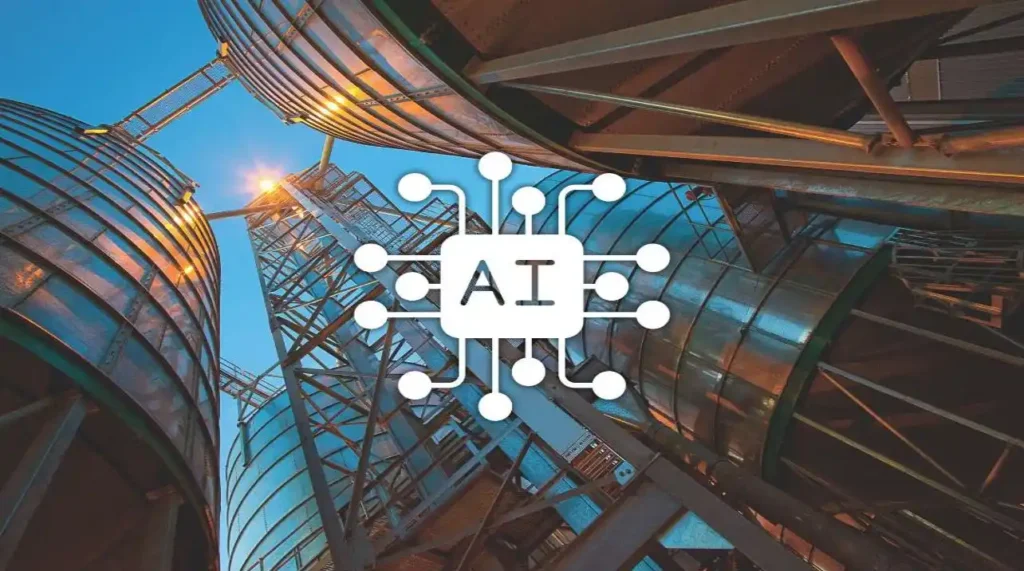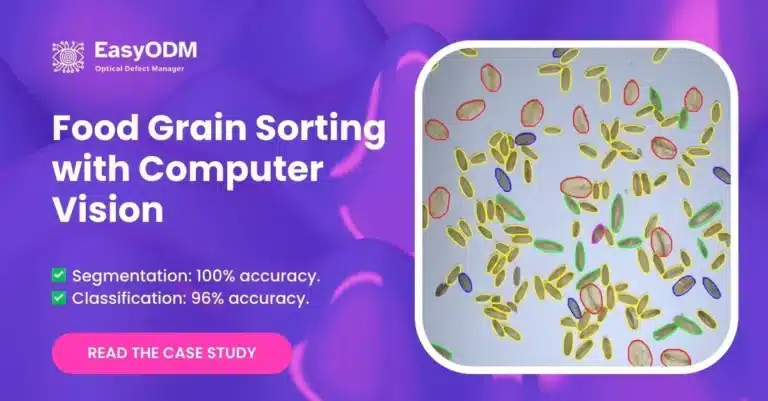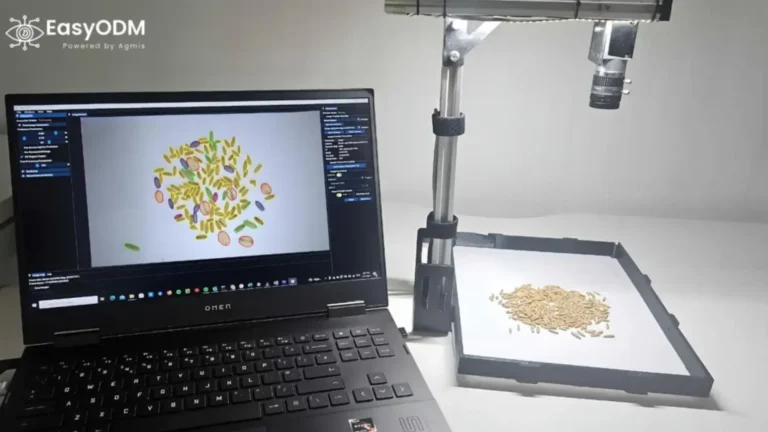Artificial Intelligence (AI) is transforming how grain handlers work. It helps manage grain quality, control pests, and track inventory. This article explores how AI improves efficiency, quality, and sustainability for grain handlers.
Key takeaways:
- Improving Grain Quality Control: AI ensures only high-quality grains are used. It can detect defects with 96% accuracy and reduce associated cost by 30x.
- Detecting Infestations and Managing Pests: AI helps spot early signs of pests, which can cause up to 20% of post-harvest losses.
- Inventory Management and Forecasting: AI predicts future demand and keeps stock levels right, significantly lowering storage costs.
- Environmental Sustainability: AI helps grain handlers meet consumer demand for sustainability. Many consumers are willing to pay more for sustainably produced goods.
- AI-Driven Compliance and Traceability: AI tracks grain from source to final product, ensuring safety and transparency.
Improving Grain Quality Control
AI is important for ensuring that only high-quality grains are used. It checks grain samples to find impurities and assess quality. For example, AI systems like EasyODM’s grain sample analysis can detect defects with 96% accuracy.
This helps grain handlers, including grain merchants, keep their products at a high standard. Constant high quality improves their reputation and makes them more competitive in the market.
Detecting Infestations and Managing Pests
Pests are a major problem for stored grain. They cause significant losses worldwide. Here are some key points to consider:
- In developing countries, pests can lead to 10-20% of post-harvest losses.
- Even in developed countries, pest-related losses can reach up to 9%.
- Pests can reduce grain weight by up to 63.85% over three to six months of storage.

Early detection
AI systems can monitor storage conditions like temperature and humidity to keep grain away from pests. They can spot early signs of infestations.
Early detection allows for quick action to reduce spoilage and maintain grain quality. Grain traders benefit from this by preventing large losses and keeping their grain safe.
Inventory Management and Forecasting
AI helps grain handlers manage their inventory effectively. It looks at past data and market trends to predict future demand. This helps keep stock levels right and avoids having too much or too little grain.
AI-driven inventory management can significantly lower storage costs. It also makes the supply chain more responsive. Grain merchants can use this information to decide the best times to buy and sell grain, which improves their profits.
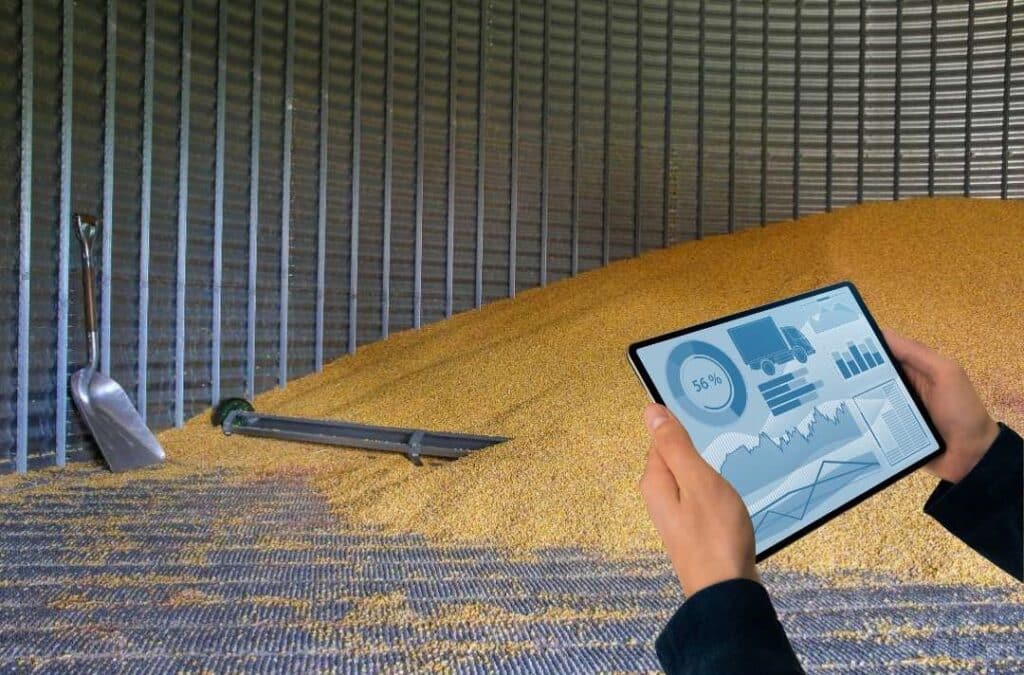
Environmental Sustainability
AI supports environmental sustainability. It helps reduce chemical use by analyzing when they are really needed. This is better for the environment. AI also helps use energy more efficiently in storage facilities, lowering carbon footprints.
Meeting Consumer Demands for Sustainability
Many consumers care about sustainability. This sentiment is shared across the globe.
- Over 80% of respondents claim they are willing to pay more for products made sustainably.
- Some are ready to pay about 9.7% more for goods that are locally sourced, made from recycled materials, or produced with fewer carbon emissions.
Grain handlers can effectively manage these factors with AI, ensuring high-quality products that appeal to environmentally conscious consumers.


AI-Driven Compliance and Traceability
AI helps grain handlers follow industry regulations by providing strong traceability across the agriculture supply chain. It tracks grain from its source to the final product. This ensures transparency and is crucial for food safety.
If there is a contamination issue, AI helps with quick recalls. Grain traders using AI for compliance and traceability show they are committed to safety and quality. This can give them a competitive advantage in the market.
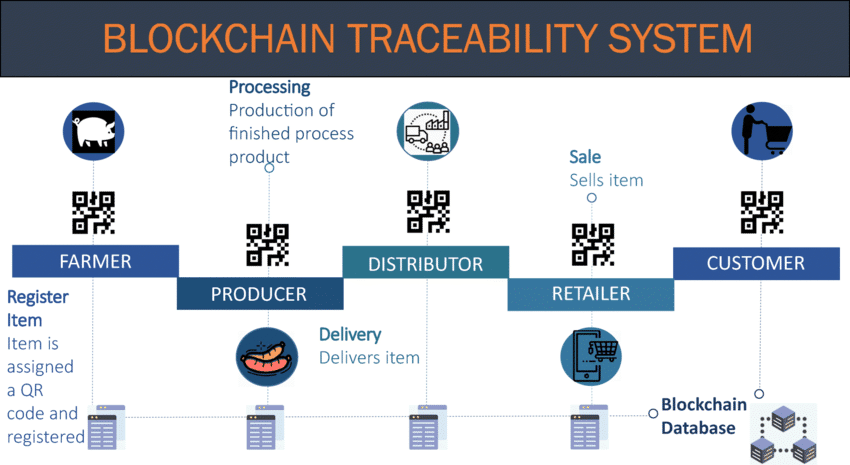
Future Trends in AI for Grain Handling
AI will keep growing in importance for grain handling. Here are some key trends to watch:
1. Scalability of AI Solutions
As global grain demand rises, AI will need to handle more data quickly. Future AI advancements will likely involve more powerful systems that keep up with increased demand. This will help grain handlers and grain merchants scale their operations effectively.
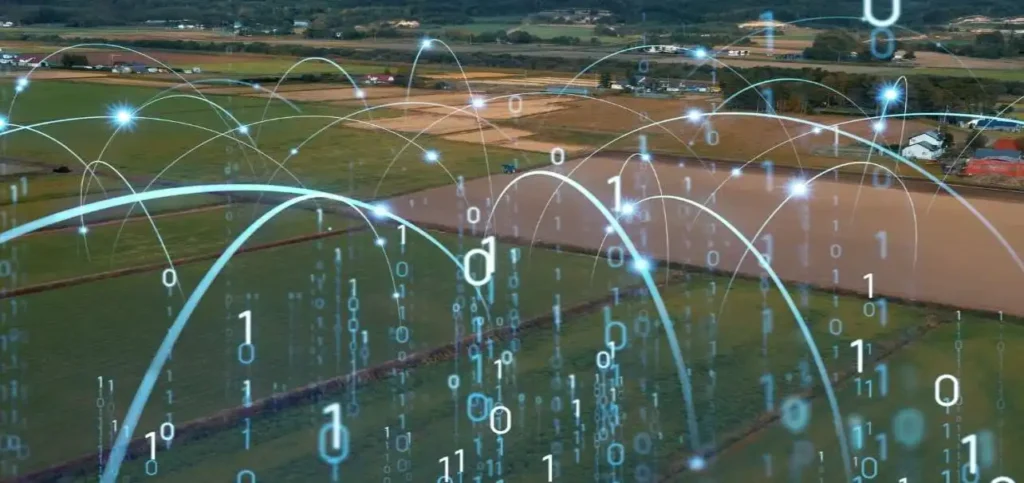
2. Climate Resilience
AI can help grain handlers adjust to climate change. It predicts how weather patterns will affect grain production and storage.
This allows for proactive steps to protect the grain supply chain. Grain merchants can use AI to develop strategies for dealing with climate-related challenges.

3. Supply Chain Resilience
AI improves supply chain resilience by optimizing logistics and distribution. In the case of natural disaster, pandemic or other disruptions, AI can quickly adapt. It can suggest alternative routes or suppliers.
AI also allows grain handlers to make strategies to mitigate these disruptions. This reduces delays and helps grain handlers keep operations running smoothly during disruptions.
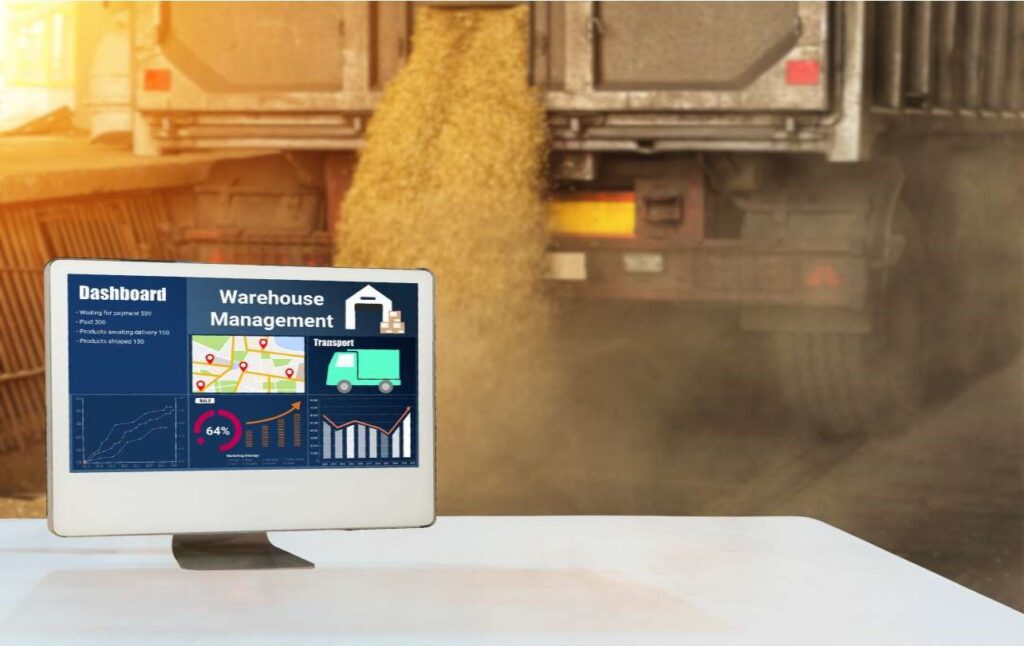
Conclusion
AI is changing the grain processing industry. It improves quality control, manages inventory, and supports sustainability for all grain handlers. From pest management to compliance with regulations, AI provides many benefits.
Grain handlers, grain traders, and grain merchants who adopt these technologies will meet consumer needs and ensure a profitable future. AI helps them stay competitive and offer high-quality, safe, and sustainable products.
Want Flawless Product Quality?
Book a free strategy call to see how AI-powered inspection can streamline your production.

Gediminas Mickus
Business Development Manager
